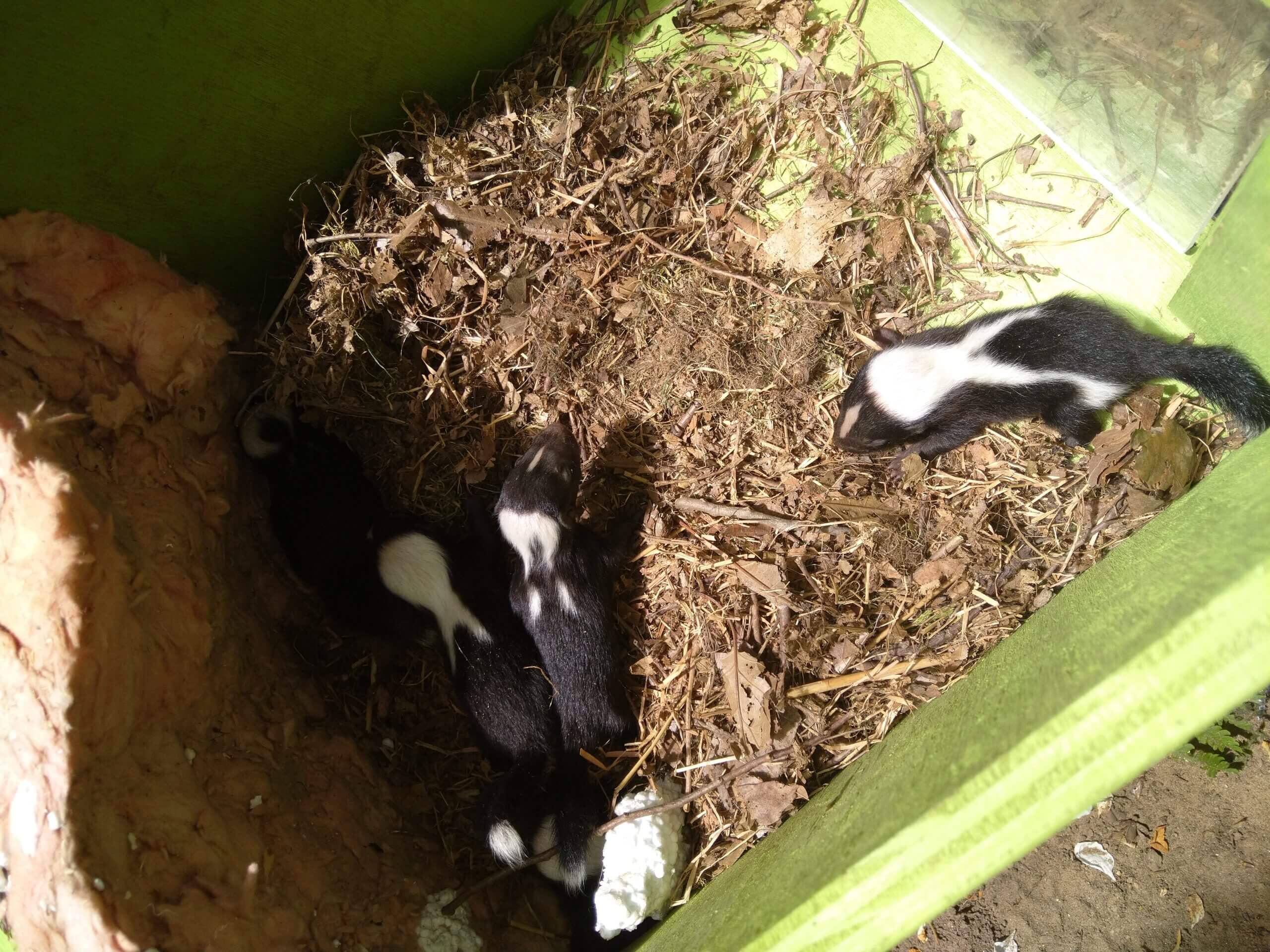When most people think about skunks, the only thing that really comes to mind is that they put off an offensive odour. Yet, others think that these adorable critters make great pets. Wild animals should not be kept as pets, and it is illegal to do so in many places, but it is possible to obtain a domesticated skunk that has been bred in captivity. When you encounter a wild skunk living on your property, contact Skedaddle for safe and humane skunk removal, without the smell.
The Difference Between Domesticated and Wild Skunks
Skunks have been domesticated through captive breeding programs for more than 50 years. These skunks are sold as pets and have their scent glands removed when they are between two and five weeks old. A skunk’s primary form of defence is its ability to spray its sulphur-based scent on anything — or anyone — that poses a threat. The removal of their scent glands is a topic of controversy, as it is their only real means of defending themselves.
Though they have a naturally potent stench, skunks are rather shy by nature. They can also be playful and affectionate. When these animals are raised in captivity, they make mellow companions that love to give and receive attention. The loss of their scent glands leaves them defenceless, making it necessary for them to remain in a protected environment.
The Logistics of Skunk Pets
Keeping a skunk as a pet is a big responsibility. Their instinct is to roam over a large territory. If they happen to get out of the house or escape the yard, they could travel miles in any direction before the owners realize they’re gone. Domesticated skunks do not have the same instincts for returning home that domesticated cats and dogs have. They lack the training they would have received from their mothers in the wild and are vulnerable to predation and run-ins with cars. Without their scent glands, they also don’t have their only means of protection.
Pet skunks require a significant amount of care. They eat a lot of food from a variety of sources. They are known to forage in the trash, but they can’t properly digest processed food. A healthy diet for a pet skunk consists of:
- Lean, healthy proteins from animal sources, such as fish or chicken
- Veggies
- Small amounts of fruit
- Cooked, whole grains
All of their food should be fresh, not frozen, canned, boxed or bagged.
Domesticated skunks also require time and attention. They like to play and need a stimulating environment. A bored skunk is a mischievous skunk, which can make it quite destructive. They have long, sharp claws that they can put to use in ways their humans may not appreciate. Nocturnal by nature, pet skunks — like domesticated cats — must be trained to sleep at night and stay awake more during the day.
The Legalities of Skunk Ownership in Ontario
If you live in Ontario, owning a skunk is illegal and has been since 1999. The province prevents people from keeping any native animals as pets. Though it is possible to purchase domesticated skunks as pets, the laws in this province don’t allow it. If you have a pet skunk and are caught, you could face a fine and be forced to get rid of your pet. If you have a wild skunk on your property, it is illegal to capture it and keep it. You also risk getting sprayed. If you find a wild skunk on your property, get help with humane wildlife control in Richmond Hill.
The Experts in Skunk Removal
Skedaddle Humane Wildlife Control has the expertise and knowledge to remove skunks safely and humanely from your property, without getting sprayed. If you need help with skunk removal, get in touch with our office to schedule services.




